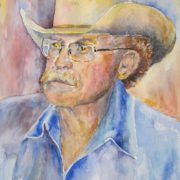As Ken Graydon Lay Dying
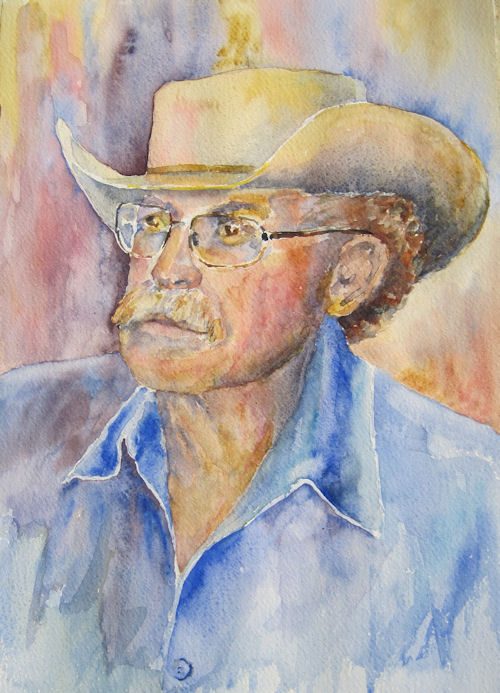
Forgive me, Ol’ Pard, but I want to get this one in for you before your great heart stops beating. Something in me rebels against the thought of writing in the past tense of a man who is larger than life, “a genial bear of a man” who has inspired as many songs as he has written, who represents the last of the dying west, and perhaps the last of the just, and proves every day that as long as the sun sets in the west, there will be a cowboy to watch it go down.
You have been that cowboy for me. Oh, I know you tried to fool us modern sodbusters and “Death Valley 49ers” by writing songs of the sea too, like your classic Whaler’s Tale, and even train songs like your Coyote Special, but we both know where your heart came from—the days when your father was a working cowboy in Seligman, Arizona in the 1920s, from whom you inherited your love of horses, boots and saddles. So humor me, Ken, and let me hold off on the sails and rails for a few minutes. You were a man who wore many hats, but your cowboy hat fit best. I hope Phee doesn’t mind, either.
Ken and Phee (Ken Graydon and Phee Sherline) are rarely seen apart; they appear almost like one musician with two instruments—she plays the hammer dulcimer and he plays a big twelve string guitar—matching his booming bass voice with its powerful bass runs. Ken doesn’t play anything “fancy on a stick,” as Woody Guthrie once described his own playing, just the right chord and the right strum at the right time, always keeping the song and its story front and center.
Ken is the spiritual godfather of Songmakers, the quintessential folk singer/storyteller who could always turn a good yarn into a good poem or song. Nothing was off limits; even his own brain cancer inspired this rattling good cowboy poem about every debilitating side effect of the medications that would hopefully save his life:
Medicine Talk
By Ken Graydon, January, 2011
While reading through the warnings
Of these pills I take each morning,
The feeling comes aborning
That something is awry.
For that which happens to you
As each slowly courses through you
Can cause a sort of voo-doo
When they join and multiply.
For each new medication
Seems to add more information
That further ingestation
Could bring consequences dire.
And as though this weren’t enough
When the going’s really tough
They’ll make it rather rough
‘Cause then they’ll get together and conspire.
Levetiracetam can run antic
It can sometimes leave you manic.
It can cause attacks of panic,
Make you hear things that aren’t there.
It’s designed to ward off seizures
Which can sneak up in your leisure
But it’s dangerous for geezers
For their complications flare.
It can cause hallucinations
And other aggravations
Such as hyperventilation.
Insomnia comes in rollers tidal.
Fevers, chills and rashes may come visit
And you start to wonder “Is it
Time to bite the biscuit?”
It can make you suicidal.
Famotidine’s for fighting reflux
Which is similar to upchucks
And I can tell you, it sucks
When a belch disturbs your sleep.
Use caution if you’re older
For it tells you in the folder
That consequences then grow bolder.
They’re enough to make you weep.
And then there’s Dexamethasone.
This one goes right for the bone.
If you’re osteoporosis prone
It helps you on your way
Along with fever, seizures, chills
A myriad of mental ills
Like weakness, sadness, losing wills,
All for a moderate co-pay.
It says there that your bones might break.
Perhaps your back and head could ache.
It might at night keep you awake
Or give you indigestion.
Do not despair. It’s no upsetter
For the statement’s made in big bold letters.
It’s all designed to make you better.
Now, have you any questions?
Posted by DeathValley49ers
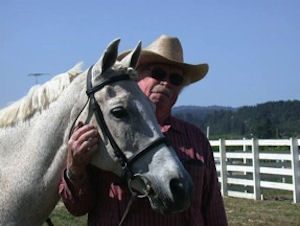 Ken was born October 30, 1933 in Long Beach, California, and raised in Bakersfield and Delano, where he raised and trained horses with his father, though, as he put it, he had enough sense not to ride a bronc or a bull in rodeos. His mother designed the family home, an adobe ranch house she filled with Indian and Mexican pots and artifacts, in the San Joaquin Valley north of Bakersfield. In addition to horses, the family raised cotton and olives.
Ken was born October 30, 1933 in Long Beach, California, and raised in Bakersfield and Delano, where he raised and trained horses with his father, though, as he put it, he had enough sense not to ride a bronc or a bull in rodeos. His mother designed the family home, an adobe ranch house she filled with Indian and Mexican pots and artifacts, in the San Joaquin Valley north of Bakersfield. In addition to horses, the family raised cotton and olives.
I first met Ken and Phee at the Claremont Spring Folk Festival in the 1980s, where year after year we would share the closing ceremonial sing along on their outdoor stage. Ken did workshops on cowboy songs, of course, but also railroad songs and sea shanties. Not surprisingly for this cowboy poet, he was particularly devoted to shanties of the west, observing that most songs of “the sea” came from the Atlantic. He tried to balance the books by adding songs from the Pacific.
But unlike many cowboy poets and singers, Ken gave his Southern California roots away by not turning his nose up at the counterculture that set him apart from your typical lasso spinning, guitar slinging western bard. On the contrary; he celebrated it in one of his best songs—It’s Time To Start Singing Again:
He wrote songs in the sixties that prodded the conscience of the nation
And the words that he chose to use mirrored our own indignation
And some called him Bobby and some called him Phil
Or Richard or Johnny or Len
Now the voices have changed but the message sounds clear
It’s time to start singing again.
(Chorus)
So give me your words. Tell me what’s on your mind
Show me what needs to be shown
Come raise up your voices and pour out your song
Let me know I’m not singing alone.
From Selma to Birmingham, Chicago, New York and Seattle
He sang us the news and the hopes and the fears of the battle
‘Till it blew in the wind and it hammered and rang
And the whole land was singing and then
It shimmered and echoed and faded away
Now it’s time to start singing again
Now the years have gone ‘round and the circle’s come full in its turning
/And it’s time to be heard while liberty’s torch is still burning
For there’s power in music that can’t be denied
And it comes ‘round again and again
But no one can listen if nobody sings
So come and start singing again.
(transcribed from Ken’s website.
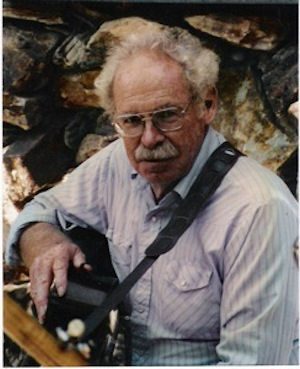 Ken Graydon once said the cowboy and sailor have a lot in common. They both live outdoors and use the stars as landmarks. He’s been collecting and writing songs of the sea for years noticing that most of the sea songs are based in the Atlantic. He’s put some exciting Pacific sagas to music and collected songs from this ocean that are often quite different from their Atlantic counterparts. (source: www.kengraydon.com) Here is one that has traveled around a good deal, based on a true story recounted by San Francisco whaling captain Charles Melville Scammon from the California Gold Rush:
Ken Graydon once said the cowboy and sailor have a lot in common. They both live outdoors and use the stars as landmarks. He’s been collecting and writing songs of the sea for years noticing that most of the sea songs are based in the Atlantic. He’s put some exciting Pacific sagas to music and collected songs from this ocean that are often quite different from their Atlantic counterparts. (source: www.kengraydon.com) Here is one that has traveled around a good deal, based on a true story recounted by San Francisco whaling captain Charles Melville Scammon from the California Gold Rush:
A WHALER’S TALE
Words & Music by Ken Graydon
(Recorded by Tom Lewis.)
I signed aboard this whaling ship, I made my mark it’s true,
And I’ll serve out the span of time I swore that I would do.
But I’ll not man your boats again, though you cast me in the sea,
For I tell you sir, them fish can think as well as you or me!
Just yesterday the lookout’s call had bent us to our work,
I took me place like all the rest, I’d not be one to shirk;
Now thirteen men’s been drownded, and no more of them we’ll see,
I’d take an oath, them fish can think as well as you and or me!
We pulled our boats abreast the pod, the steersman took his stand;
He had no time to make his throw, when the oar flew from my hand,
Just then a great fluke smashed our boat, that whale I didn’t see,
But I believe them fish can think as well as you or me!
For then them whales destroyed our boats, they rammed them one by one;
They stove them all with head and fluke and after they was done,
We few poor souls left half-alive, was clinging to debris,
I’d stake my life them fish can think as well as you or me!
The way them whale fish went for us, it seemed as though ’twas planned,
For each one had his target boat, they played us man for man;
Just knowing’ now they think so clear, my heart says let them be,
I swear to God them fish can think as well as you or me!
Now John is blind, Jim’s lost an eye and Caleb’s lost below;
My leg will heal but other men no more aloft can go,
So I’ll not man your boats again though you drown me in the sea,
For I tell you sir, them fish can think as well as you or me!
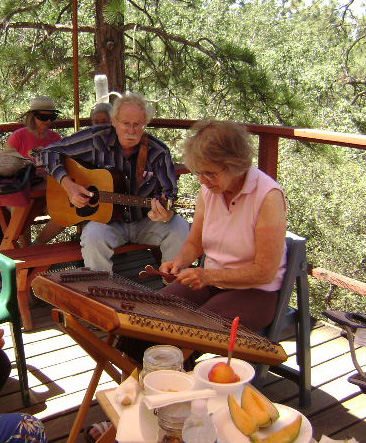 According to Ken’s wife Phee Sherline, who detailed the song’s origins for the Mudcat website, “Scammon’s book (1875), ‘The American Whale Fishery’ is a notable work. I believe he also wrote a book with a title similar to ‘Marine Mammals of the Pacific’, which was considered a definitive text. Ken’s song is fiction but tells what possibly could have happened when Scammon entered the lagoon.”
According to Ken’s wife Phee Sherline, who detailed the song’s origins for the Mudcat website, “Scammon’s book (1875), ‘The American Whale Fishery’ is a notable work. I believe he also wrote a book with a title similar to ‘Marine Mammals of the Pacific’, which was considered a definitive text. Ken’s song is fiction but tells what possibly could have happened when Scammon entered the lagoon.”
Ken rides one other hobby horse that must be mentioned to let those outside of his wide circle of friends have some measure of the man: Before he was diagnosed with brain cancer last year Ken continued to write and perform but spent much of his time “wrangling a different kind of horsepower–cars. His specialty is wiring hot rods.”
As a matter of fact, his skill as a mechanic served him well as a folk singer too, for when Ken and Phee took their show on the road in their sturdy one-room motor home, Ken was always able to keep their performance dates by keeping their “horse” in optimal running condition. While Phee would work up their bookings on the computer, Ken would work on the engine, brakes and whatever else needed fixing to get them there.
A master storyteller and craftsman with words and music, as well as horses, ships and steam engines, Ken took his deadly illness and subsequent radiation and chemotherapy as one more challenge to write about. With the telltale meter and internal rhyme scheme of the cowboy poet, he addressed his own mortality with the same clear-eyed sense of humor and down-to-earth honesty that speaks to his innate strength of character.
To sum up, Ken Graydon is a mensch, dying with the same quiet nobility with which he has always lived. In this wonderful poem, one may easily imagine Tevya talking to God, if Tevya had worn a cowboy hat:
Nuff!
by Ken Graydon, December, 2010
Now we’ve all heard the word that the almighty Lord
Doesn’t send you a thing you can’t take.
Just reach down inside and you’ll find he’ll provide
What you need to succeed some bad break.
If you sit there and whine you’ll be sure to resign
And that will be no use at all
And I’ve often heard said that what don’t make you dead
Makes you stronger when your back’s ‘gainst the wall
For each tribulation there’s a grand explanation.
That it’s left up to you to discern
And sooner or later in the depths of each crater
There’s some wonderful secret to learn.
No use in cryin’. You’ve got to keep tryin’.
The answer just lies deeper down.
When He hands you a big’un if you keep on diggin’
There’s some treasure deep down to be found.
I know men of faith say whatever he sayeth
Comes true when you’ve shelled to the cob
And he’s give me this task for which I did not ask
‘Cause he figures I’m up to the job.
Considerin’ this matter I guess I should be flattered.
I s’pose most men more pious would be.
But, sisters and brothers, if I had my druthers
I wish he’d quit braggin’ on me!
Ken, from now on every time I sing a cowboy song, a sea shanty or a railroad song, I’ll hear your voice too, and to quote a great songwriter, I’ll know I’m not singing alone. Adios, Ol’ Pard, and thank you for a lifetime of trails, sails, whales, rails and tales. .
Ross Altman has a Ph.D. in English. Before becoming a full-time folk singer he taught college English and Speech. He now sings around California for libraries, unions, schools, political groups and folk festivals. You can reach Ross at Greygoosemusic@aol.com

